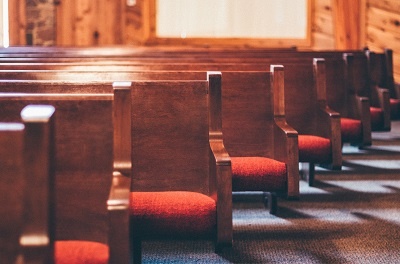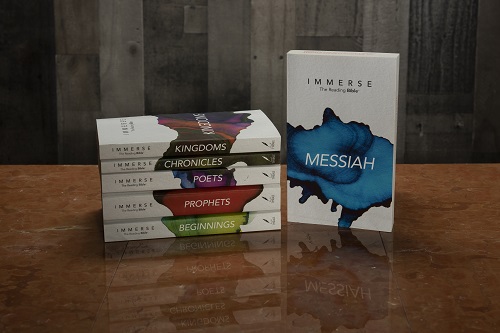by Glenn Paauw, Institute for Bible Reading
Reading the Bible well doesn’t happen automatically. There are steps we must take to ensure we’re receiving the Bible on its own terms.
We read a well-translated Bible, and we read it holistically. We read complete literary units. If at all possible, we read in a nice, clean, elegant Reader’s Bible. They’re built to make reading easier and better, so no surprise there. But wait. Who is reading? We are. We are reading.
Really? We? Yes.
Why?

Because, first, research shows that most of us are not really reading the Bible very much. And second, when we do read it, it’s not really we who are reading. It’s more like me or you. In other words, those who are doing something with the Bible are overwhelmingly doing it alone.
The fact is, we’ve largely privatized our experiences with the Bible. We hold up the “daily quiet time” as the center of what we’re supposed to do with the Bible. We’ve created a culture in which an individual Bible experience is at the heart of what a serious Bible reader does.

Alone with a Bible, I have my private time with God.
Which is fine.
Of course, none of this is a problem as far as it goes. It’s great to read your Bible alone. Lots of very good things can and do happen.
But not all the good things that God intended. Two historical points are really important here. First, when the Scriptures were first experienced by God’s people, they were always experienced in community. There were very few copies, so a village in ancient Israel or one of the earliest Christian gatherings would at most have a copy of some of the books that now make up the Bible. As such, these Bible portions would be read aloud for the community, and people would simply listen.

Now, they could listen well and remember what they heard because they lived in an oral culture, a far cry from our context, in which written materials are so readily available. The historical evidence also shows that these listening experiences were interactive, not merely one-way communication. Everyone (including the leaders) was processing the sacred words together.
Secondly, and just as importantly, the original audience knew that the Bible itself was a community-formation book, not a private me-and-God book. The word you in the Bible is most often a plural word, not singular. God’s Word is addressed to the gathered people of God and is intended to speak to them in their corporate beliefs and actions. As a group, they were being invited to get caught up in God’s great restoration movement.

We’ve moved away from this ancient, oral, community-based culture in lots of ways. In fact, it is worth noting that the Bible first became widely available to individuals in their own language right at the same time that modern individualism was growing as a cultural force. We live and move and have our being in this individualism. It is the air we breathe. Without even thinking about it, we think and act in independent, self-oriented ways.
So for us, recovering a deep, transformative engagement with the Scriptures has to include rediscovering ways of experiencing the Bible together. And this means more than doing a Bible study together. We must back up a step and find new ways of simply reading the Bible together, listening to it being read and letting the words wash over us.
Then we must craft new ways of interacting openly and honestly with what we’ve read or heard. We must learn the humility to speak our own views respectfully and well, and then listen closely and seriously to what others have to say.

This communal engagement will look more like a book club than a traditional Bible study.
Finally, we need to think about the communal implications of a passage, not just the personal impact for ourselves as isolated individuals. Our Bible reading must explicitly raise community-based questions. What kind of community will embody this teaching or instruction? How can we become that kind of community?
Bringing community-based engagement back to our Bible reading won’t happen unless we are intentional about making it happen. The Institute for Bible Reading has created a whole-church-based Bible reading program called Immerse precisely for this reason.

We don’t see, hear, experience, or know enough to experience the Bible sola me. We are too small to try to read this grand story only by ourselves. Together, we are the people of God’s new creation, and we need each other—even in our Bible reading, understanding, and, yes, living.
Read more from Glenn on how to receive the Bible on its own terms.


I Love My NLT. I share it with everyone.
Thank you!! This bring us so much joy!
Just don’t go a day without reading the word.
I love the time my husband and I read and discuss the word. Praying before we get out of bed and putting on our armo. Pam
i would like to get my hand on anything you have on the bible in big print teading together and anything you having on prayer also on praying with family anything on the bible of the word of God the living bible the NIV. I am looking for a great Study bible Please and thank you so much for the information that you have already given to me, just any good reading on the word of The God almighty from Heaven so i say thank you so much.a friend alway jacqueline m weir.
Thank you for reaching out! You can find all of our products at Tyndale.com Many are available through local bookstores or on Amazon, Christian Book Distributors,etc. Our Swindoll Study Bible and Life Application Study Bible are both available in Large Print. Thanks again and praying for you as you go deeper into God’s Word.
Everywhere I have looked lately this concept of community has popped up. It is in prayer in worship in serving one another and out larger world and yes I see this need in Bible reading. I serve with Proverbs 31 Online Bible Study and their push to eradicate Biblical illiteracy.
Yet I stand unable to push myself to seek community. I belong to a great church, but I haven’t let them belong to me.
Thank you for sharing this. It is very hard to put ourselves out there and connect with a community. Thanks again for opening up and sharing your heart!
Wow. This is so foreign to me. I have grown up in the church but have always had the ‘traditional’ approach to Bible study: attend church service, attend an adult Sunday school class, go to a ‘small group’ Bible study outside of church attendance, have my own personal ‘quiet time’. This has become somewhat boring to me over the years. I am 53 and find myself somewhat disenchanted with my Christian walk. I know I am Saved as I prayed the ‘sinners prayer’ as a child, and have rededicated my life as an adult. I am just at a point where I need to get re-envigorated….something new. Maybe this concept has validity, and I look forward to exploring it more.
Hi Bill! I have been reading Immerse and really has helped me see the story of the Bible in a different light and I’ve noticed things I never noticed before though I too have been reading the Bible since I was a child. If you would like more information you can check out our website immersebible.com Let us know if you have any questions!